Does Punta Cana Have Sharks?
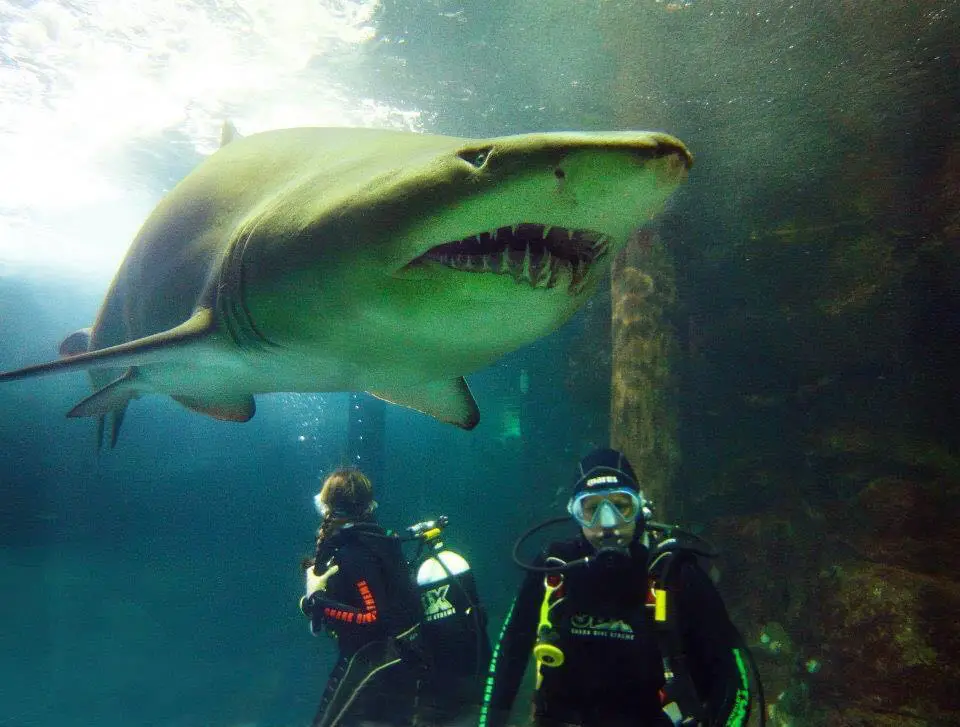
Contents
Does Punta Cana have sharks?
Although the coast of Punta Cana is in the waters of the Caribbean Sea and close to the North Atlantic Sea, there are no sharks or other potentially dangerous marine species at Punta Cana beaches.
If you are very afraid of sharks and plan to visit the beaches in Punta Cana, you can rest assured that the beaches of Punta Cana have no problems with the presence of sharks.
the Dominican Republic’s shoreline is bordered by a coral reef, this implies that sharks are very rare visitors in the coastal waters since the reef is a natural barrier for them.
In addition, a shark is a predator that feeds mainly on large prey: seals, sea lions, less commonly dolphins, well, all types of large fish.
Of all these individuals, only dolphins are found near the Dominican coast, and even then it is very rare, this implies that Dominican beaches are not feasible as a feeding area for sharks.
Additionally, a single person is not normally part of a shark’s diet, so there is practically no potential risk of an attack in the Dominican Republic or Punta Cana.
If you want to swim with sharks and get to know the marine life in Punta Cana, there are many different diving options in Punta Cana, guided by friendly people with a lot of experience and knowledge on the subject.
On excursions you can snorkel with nurse sharks, these are extremely passive.
Punta Cana shark species
The most common species are cat sharks, reef sharks, lemon sharks, nurse sharks, bull sharks, silky sharks, tiger sharks, blue sharks, and whale sharks. Although these are the most common species in the Caribbean area, it does not mean that they have large populations here.
When I say Punta Cana shark species, I don’t mean that they exist on the beaches, but rather, in the depths of the Caribbean Ocean.
I have friends who have dived for 15 years in the Dominican Republic and have never seen a shark. That’s serious!
Are there great white sharks in Punta Cana?
Some small sharks have been seen on some beaches, very rarely, but so far there has been no case of the great white shark in Punta Cana, Great white sharks spend most of their time in the open ocean and since 2017 in the Dominican Republic shark fishing is prohibited.
Great white sharks, along with bull sharks and tiger sharks, are among the most dangerous and feared species of sharks.
I have seen documentaries of bull shark attacks on shallow water beaches in the Massachusetts area at Cape Cod national seashore, theorized to be due to the fact that these sharks seek warmer waters.
Great white sharks have also been seen on the shores of beaches elsewhere because they are hunting seals.
And although the beaches of Punta Cana and all around the Dominican Republic are warm water, there have never been any sightings of bull sharks or white sharks on shallow water beaches in the Dominican Republic.
In other words, there is plenty of warm water all around the island and this type of shark has nothing to do and nothing to look for on the beach.
The specific case of great white sharks occurring near the beach (never seen in Punta Cana or any beach in the Dominican Republic), is specifically because they were attracted to hunt seals.
There are no seals on the beaches of Punta Cana, therefore there are no white sharks hanging around.
Punta Cana Shark Attacks
According to the Shark attack Data page collects information on reported cases of shark attacks in different parts of the world.
In the Dominican Republic, only 4 shark attacks have been reported since 1963 to date, the most recent incident was reported on 12 February 2016 at Bávaro Beach Punta Cana.
Narrative: Sandra Harris and Patricia Howe were staying at Club Hotel Riu Bambu and were directly opposite the hotel’s pool, but shoreward of white buoys that may have been marking the safe swimming zone.
Several other people were in the water. When the two women saw a large wave approaching, they turned their backs on it. As the wave struck, both women were knocked down in the water, and Patricia’s leg was bitten.
The Most Insecure Beaches Of Punta Cana
The two most insecure beaches of Punta Cana are public beaches, which are the beach of Uvero Alto and Macao, these beaches do not have a wave breaker and also lack signs.
Don’t get me wrong, Macao and Uvero Alto are magnificent and beautiful beaches, the thing is that they have a public section and therefore it is not perfectly conditioned, there are sections of this beach that are occupied by hotels that are perfectly conditioned for private use.
Macao beach only has some signs that specify its high waves, and that it is a beach of surfers, so bathers must be very careful. In addition to this, there are lifeguards placed in a tower for the best sighting of those in danger.
The lack of protective elements allows any marine species, as well as large waves, to reach the maritime spaces that are supposed to be enabled for the use of vacationers.
The private section of these beaches is quite safe and fully conditioned.
My own experience as a native visiting the beaches in Punta Cana
As a native of the Dominican Republic and writer of this topic, I must say, that the intention is not really to create false expectations or tabloid news.
I have visited on many occasions different beaches in Punta Cana, including Arena Gorda Beach, which is one of the best beaches I dare say in the entire Caribbean.
They are very peaceful beaches, some beaches are a little livelier than others in terms of waves, nothing more.
The events described in this topic, have been extremely isolated events, on the beaches of the Dominican Republic and Punta Cana the only thing you will find is water and sand (along with palm trees, people, etc, but you get the point, right?).
Not even a small fish appears on the beaches, the only thing I personally was afraid of was sea urchins, and this was in my childhood when I visited the beach of Boca Chica, near Santo Domingo.
Well… I don’t want to exaggerate either, the sea is a natural habitat for many other creatures in the wild that could pose a danger to humans at any time, such as jellyfish.
In short, sharks are not a problem or something to be feared in Punta Cana.
If I were to make a projection, I think the chances of you seeing a shark on a Punta Cana beach are less than 1%, without fear of exaggeration.
Punta Cana Shark Fishing
Previously there were no laws in the Dominican Republic for protection against shark fishing, but since 2017, shark fishing is prohibited due to an incident with a blue shark in Punta Cana.
Through Resolution No. 023/2017, the Ministry of Environment and Natural Resources ordered the ban on the capture and commercialization of all species of sharks, rays, parrotfish, and hedgehogs.
That inhabits the jurisdictional waters of the Dominican Republic and the commercialization of its derivative products throughout the national territory, including its export or import.
It is established that the shark ban is for an indefinite period. Concerning the “parrot fish” and “doctor fish”.
A two-year ban was imposed for fishing or commercial exploitation throughout the national territory, and retention when they have been accidentally caught.
The Blue Shark Incident In Punta Cana
A blue shark died on the beach after being dragged out of the water by tourists and alleged lifeguards to take pictures with him. The incident occurred at the Arena Gorda beach in Bávaro, Punta Cana.
A group of nine Dominicans were responsible for removing it from the water and then accommodating it on the sand to be photographed next to the animal.
This incident of much outrage at the international level prompted the establishment of the ban on shark hunting in the Dominican Republic.
The Blue Shark Incident In The North Coast
Another similar incident with a blue shark occurred on the coast of Sosua in the north of the Dominican Republic.
A small blue shark swimming in Sosua Bay was abruptly pulled off the beach by a group of young people helped by fishermen.
The presence of the shark was a tremendous attraction for people on the beach because it was known that more than a decade had passed that a blue shark did not come so close to the coast of this popular beach located in the eastern part of Puerto Plata province.
In spite of the fear that humans have of sharks, several tourists who were taking diving lessons swam next to the shark, which did not represent any threat.
The shark was returned to deep waters, and the hunting or capture of sharks in the Dominican Republic is prohibited by law.
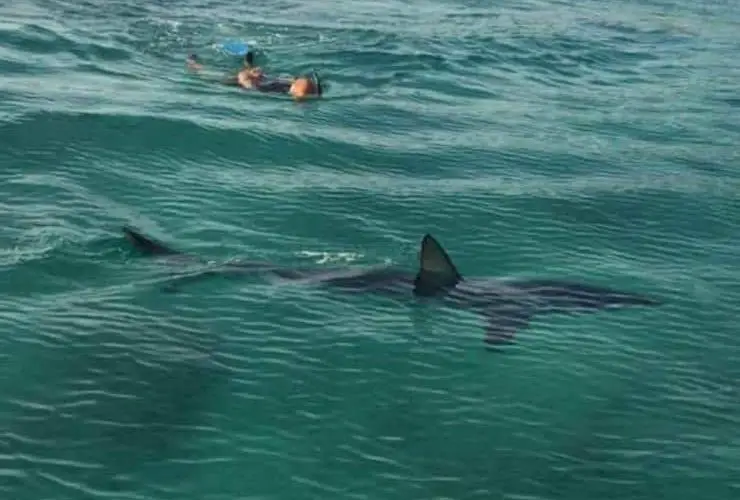
The Importance Of Sharks In The Maritime Ecosystem
Shark species that live in the Caribbean play a very important role in the marine ecosystem. They feed on weak, sick, or old fish, so they spread their genes. These keep the populations of these fish healthy and strong.
So, seeing sharks in a marine ecosystem is a sign of balance and health. Unfortunately, in recent years, indiscriminate shark fishing to meet the demand for “shark fin soup”.
In the East has caused the populations of these fish worldwide to disperse to the point that there are already certain species that are about disappearing.
It is estimated that annual shark fishing is around 273 million. This is totally unsustainable and the consequences on ecosystems can be tragic, those consequences affect us too.
trauma and the bad press with the sharks began with the book and the movie “Jaws”. Since then the media, lack of education, and ignorance have been responsible for perpetuating the bad image of the shark.
There are species that can be a little more ‘daring’, but most shark species do not pose a threat to man.


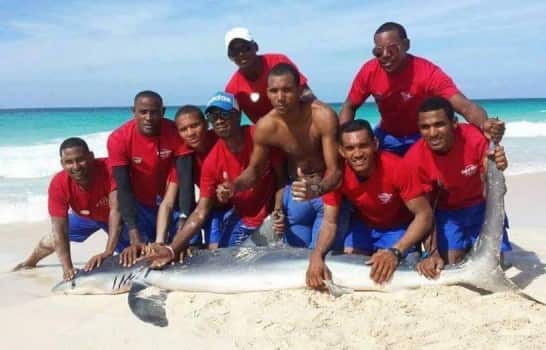
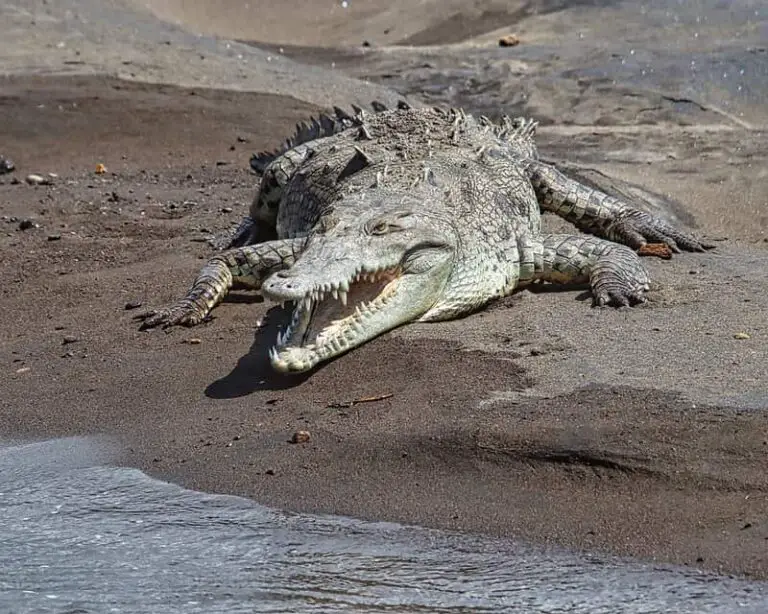
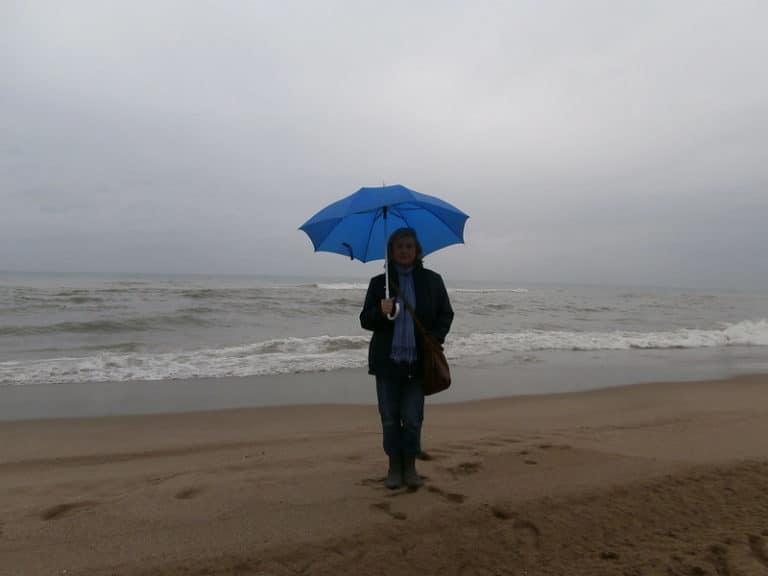
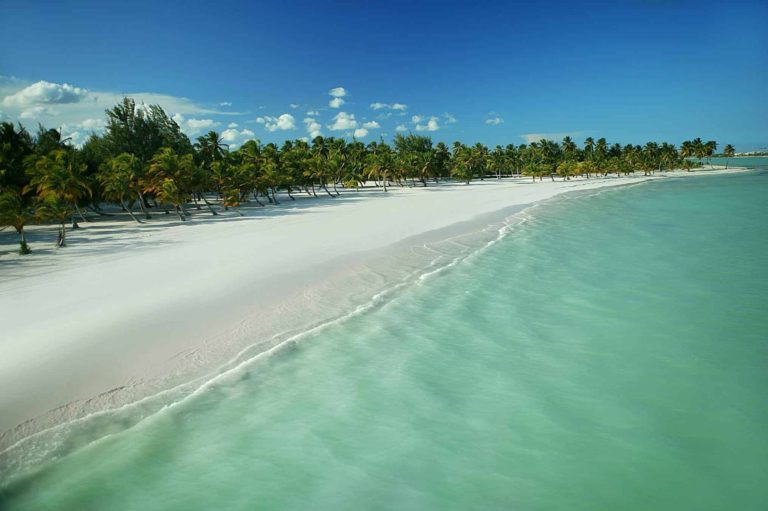
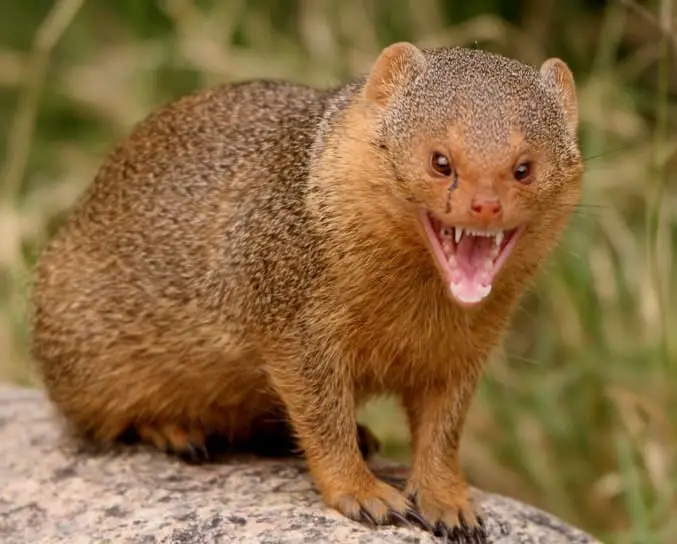
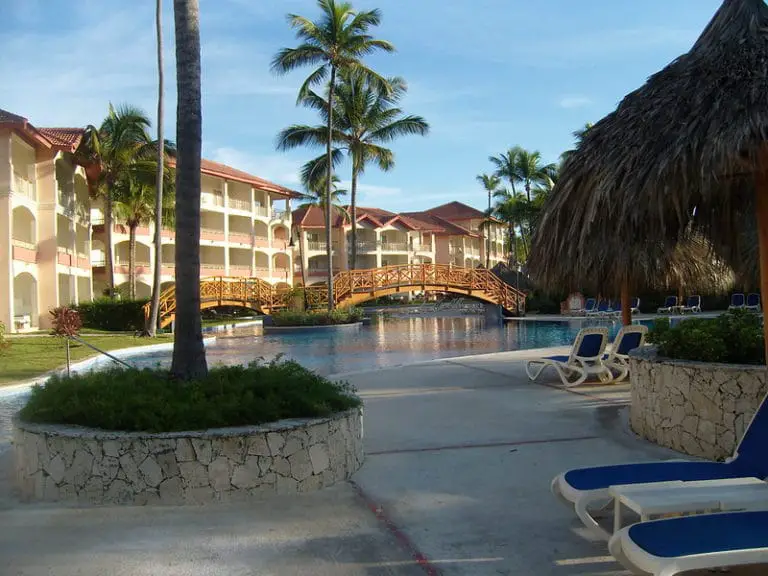
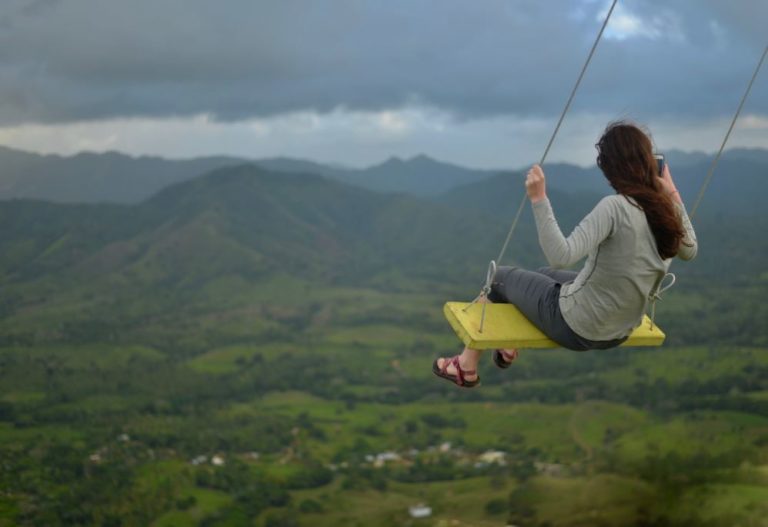
Thank you for taking the time to share such important info as I would like to travel that way some point after pandemic
Hi Robbie, it’s a pleasure, the truth is that I really enjoy writing, I enjoy it so much that I have spent most of the pandemic writing, even knowing that tourism is paralyzed.